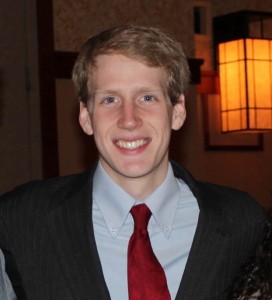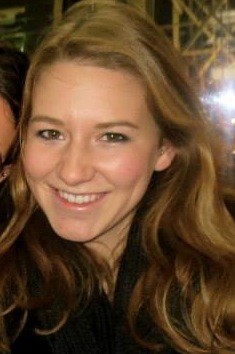 Last spring, we asked several current Penn students in the College of Arts & Sciences to talk to us about their summer internship experience.
Last spring, we asked several current Penn students in the College of Arts & Sciences to talk to us about their summer internship experience.
We hope these brief interviews give you some insight into the many opportunities and career fields that await you out in the world!
Today’s interview is with Will Marble, CAS ’15
Name: Will Marble
Hometown: Erdenheim, Pennsylvania
Year/Majors: 2015, majoring in political science and economics
Favorite class at Penn: Two of my favorite classes were actually with professors I worked with over the summer: Prof. John Lapinski’s class, “Elections, Polling, and the Media,” and Prof. Marc Meredith’s class, “Statistical Methods in Political Science.” Both involved original research papers, which was challenging but rewarding.
Where did you work and what was your job title?
Last summer I worked as an undergraduate research fellow for a political science program at Penn, the Program for Opinion Research and Election Studies (PORES). I did research assistance for Profs. John Lapinski, Marc Meredith, and Matt Levendusky on projects related to election administration and public opinion.
How did you get involved in your summer position?
PORES is a new program, and I first heard about the plans for the program from Prof. Lapinski, the program director, last winter. However, it dropped off my radar until I saw an email on the political science major listserv advertising the research fellow position. I sent an application to Prof. Lapinski and set up the job in mid-April.
Did you have any background with this subject/field before?
I had a bit of background in this subject before, since I am a political science major. My job involved a lot of quantitative data analysis, which touched on topics I learned about in my introductory statistics and econometrics classes. But I had not done any political science research prior to last summer.
What was your favorite part of the experience?
My favorite part of the experience was learning the nitty-gritty of quantitative political science research. When you read a published paper, it’s easy to take for granted all of the small bits of work that go into it (from finding data sources, to cleaning the data, to analyzing it). Over the summer, I learned how to take those steps to generate interesting, original research.
What was something you learned/did that you didn’t expect?
I was surprised to learn how inconsistent and messy some government data is (particularly at the local level). To overcome the problem of really, really messy data — for example, a 10,000-page PDF that needs to be turned into a spreadsheet of a few hundred lines) — and to analyze it once it was cleaned, I became fairly good at programming in the statistics package Stata, which is a really valuable skill for doing quantitative research.
What was the most valuable lesson you took away from this experience?
The most valuable lesson I took away was how to think about the research process: from doing background research to developing theories and hypotheses, to identifying how to where to find the data to test those theories, to actually doing the analysis. Another valuable lesson in realism is something Prof. Meredith told me: If you want to know how long a research project will take, make a first guess. Multiply that number by eight, and then you have a reasonable estimate.
How has this experience influenced your long-term career plans/goals?
I’m still involved in the PORES program as a research assistant for Prof. Lapinski, and the experience has convinced me that I want to pursue graduate studies in political science. I’ve really enjoyed being involved with original research, so I’m planning on applying to Ph.D. programs next school year.


